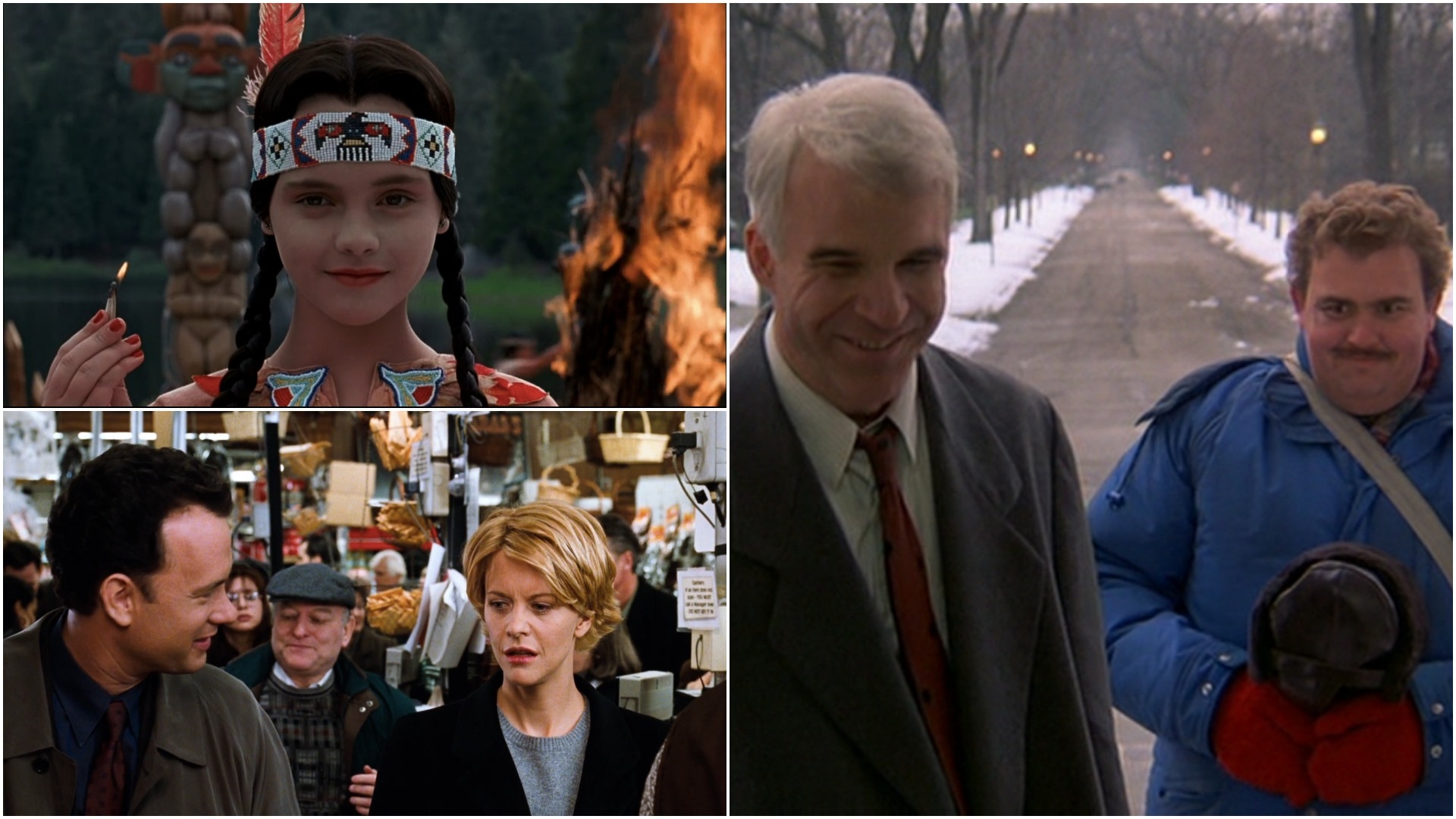The opening shot of Ang Lee’s The Ice Storm is of a train, stopped on the tracks—literally stuck between stations—in the gray-skied moments between night and dawn. It’s just one of many images to come of a world that’s frozen in motion, where the wind rustles leaf-less trees that jangle with dripping blue icicles like enormous chandeliers, and the streets that have become slick and forbidding—life stiffened and silenced, the familiar comforts of home turned coldly dangerous. Lee compounds this with myriad other images of flatly reflective surfaces, his characters peering forlornly out of gleaming glass houses or catching their somber faces in shop windows, while giving us repeated close-ups of sharply angled decorative bowls and ice trays cracking cubes into cocktail tumblers. By the time the film finally gets to its titular ice storm, it’s almost sagging, like those trees, under its own metaphorical weight. These people are trapped beneath the surface of their lives, it tells us, separated from each other by a chill that’s slowly seeped in and finally hardened. And only after the ice has been scraped away will they be able to move forward again.Lee’s film, like the Rick Moody novel it’s based on, takes place in 1973, an era when America itself was stuck between waypoints, when the libertine, all-you-need-is-love idealism of the 1960s had yielded to the realities of suburban drudgery and Richard Nixon—a bracing cold front sweeping in on the Summer Of Love. The residents of New Canaan, Connecticut are leading lives of tastefully appointed desperation, epitomized by two neighboring, intertwined families. The Hoods are captained by the boozing, visibly sapped Ben (Kevin Kline, starring in another ). His wife, Elena (Joan Allen), hides her existential dissatisfaction behind a mask of poised detachment and self-help babble. Their son, Paul (Tobey Maguire, in wide-eyed, creaky-voiced bloom), is off at boarding school, a proto-nice guy pining for the wealthy, weirdly named Libbets (Katie Holmes). His younger sister, Wendy (Christina Ricci), is home blossoming into a deadpan shit-stirrer, her teenage cynicism dovetailing nicely with the daily outrages of Watergate. Wendy’s also realizing the power of her sexuality, using it to torment Mikey (Elijah Wood) and his little brother Sandy (Adam Hann-Byrd), of the neighboring Carver family. Meanwhile, Janey Carver, played by Sigourney Weaver with an acerbic peevishness, is having an affair with Ben. []Available for rental or purchase from , , , , , and
